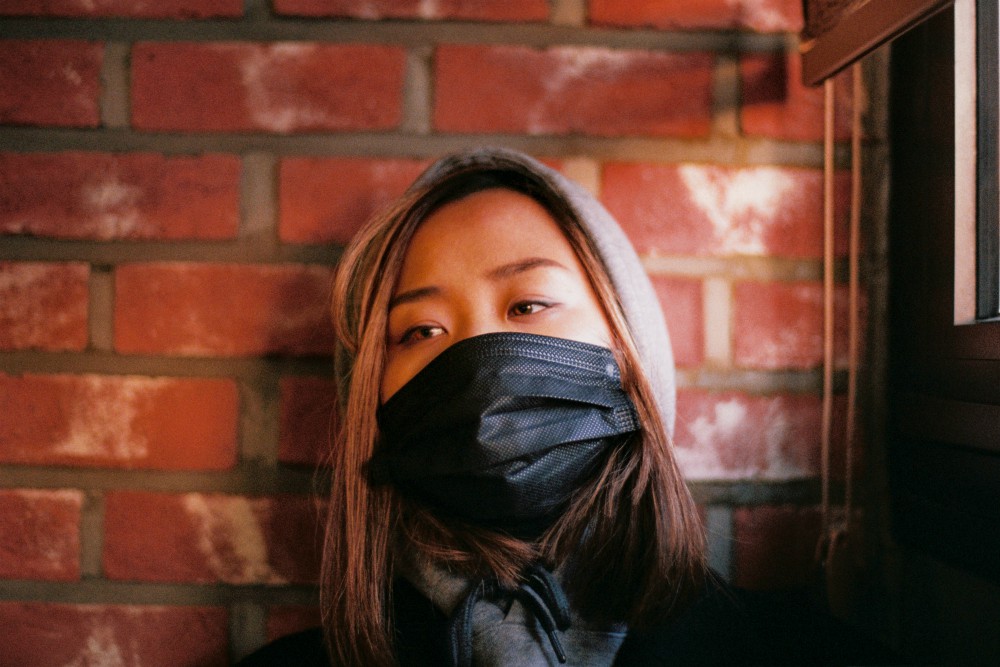
(Unsplash/Portuguese Gravity)
How does one choose to commit for life in the midst of epic uncertainty?
In early March, I was in the thick of preparing to request final vows. After three years as a temporary professed sister, I had no real hesitations about going all in. The prior months of discernment had not surfaced any second thoughts, regrets or misgivings. My life and my identity as a sister increasingly felt like a right fit.
The choice seemed straightforward and I remember wondering if I shouldn't be digging deeper somehow. Shouldn't discerning something this important be more intense, more complicated, more deliberative? That's when the coronavirus pandemic swept in, adding countless layers of intensity and complexity to everything.
COVID-19 has reframed every aspect of our lives, our relationships and our world, lending new clarity to things we scarcely noticed before. The pandemic is a common experience with a deeply personal twist. One of the paradoxes of this shared global crisis is that we are all going through the same thing, but experiencing it very differently. An unexpected gift of time with family is also the source of deepest distress for parents struggling to make ends meet. One person's inconvenience is another person's death sentence.
I spent the first weeks of the pandemic moving through the administrative process with my congregation against the backdrop of this unfolding reality. The COVID-19 lens similarly added new dimensions to my discernment of lifelong commitment.
The March meeting of our local Nuns and Nones group was a timely gift during this process. For almost a year, our group had been meeting as the D.C. "Sisters & Seekers," our chosen name. Women religious in the Washington area gathered periodically with a younger generation of nonreligious spiritual seekers.
This is an emerging community of deep and meaningful conversation about the state of the world and our place in it. As we've pondered important questions together, a sacred space of reflection and relationship has developed. The experience has been unique for me since I fluctuate between feeling like one of the younger "seekers" and owning my identity as a woman religious.
In light of the pandemic, our gatherings shifted to a digital platform. We would embark on a series of virtual "mini retreats" together to engage the question: What commitments compel us toward a loving, just and full life? The traditional vows and their modern interpretations would be fodder for our discussions and I had the privilege of kicking it off with an introduction to the vow of obedience. (I thank my Dominican sister Patricia Walter, who is literally writing a book on the subject, for her unique take on the vows. Much of these reflections were sourced from her notes.)
A pressing need to reorient
The vows of poverty, celibacy and obedience are ways that religious life helps sisters orient themselves to three defining dynamics of human experience. Poverty reorients our relationships to creature comforts of wealth, money and security. Celibacy frames the nature of our relationships with others — how we express intimacy, affection and exclusivity. Obedience defines our association to power vis-à-vis control, individual will, authority and integrity of conscience.
There is a wisdom offered by these vows that is urgent and relevant to this contemporary, globalized pandemic.
At its root, obedience is about the individual will and how much we are open to guidance from something outside of ourselves. In late March, there was an urgency impressed upon people across the globe to voluntarily stay at home. Obedience was framed as an act of solidarity.
A month later, with stay at home orders in place across the nation, a very different, negative picture of obedience was bubbling up in the United States. A narrative of forced submission and loss of individual freedoms became something to resist. What changed and what might the vow of obedience tell us?
Advertisement
Who you listen to matters
In contemporary religious life, the ideal of obedience to our sisters is akin to obedience to loving parents. Why would we disobey those who only want to see us thrive? Obedire, in fact, comes from the Latin root meaning to listen. How do you heed advice from a cherished family member, from a mentor, from a best friend? What about when it is counter to what we want to hear? Not all messages are welcome and tough love can be hard to receive.
In this sense, the vow of obedience is not about giving up one's will but rather molding it to a higher good — when the authority and the one who obeys come to share the same mind. Obedience means being open to learn, to glean from the knowledge or the wisdom outside of oneself. Whether that authority is God, the prioress or the shared mission of the community, it plays a central role in the educational process. It is a channel for the alignment of wills.
In religious life, community is a primary mechanism for living out the vow of obedience. Ideally, obedience within a community is a learning process that brings the group together to share a common will, to recognize a common good. A truly obedient community is one in which no one would ever need to be compelled to do anything.
While obedience means listening, learning and being open to a will outside of your own, it does not mean submission or relinquishing judgement. After all, even parents may not always know what's best. Part of being obedient is receiving guidance in good faith, while simultaneously not betraying our own truth.
Defining the place and nature of true authority wisely means we are as able to dissent as we are to obey. Paradoxically, obeying a higher authority may ultimately require disobedience.
How might this concept of obedience serve us now, two months into a pandemic in which there is no clear authority to guide us? Our so-called leaders are utterly failing to address the shortcomings of our economic and social structures. The suffering is increasingly acute, widespread, multifaceted and concentrated among the most vulnerable, the most frail, the poorest and people of color.
Asking the right questions
I spent the last six years asking what it means to commit to religious life in the postmodern context. Why would I commit when the demographic trends are clear and the long-term prospects for this particular way of life are questionable, at best? My questions today have changed and I'm pondering different unknowns and possibilities. COVID-19 has complicated my discernment in many ways, but my yes is still clear.
There is precious wisdom to be culled from women religious and how they live out a committed life together. Newly emerging models of community are inevitable. I trust the committed life is evolving and will continue to evolve.
The question I ponder today is what commitment might look like for all of us in the midst of this massive, disruptive global transition. How might the current crisis be a catalyst to push that evolution forward, opening hearts and minds to new possibilities?
How have you been challenged to move beyond yourself? When have you resisted? What do you hear when you listen?
[Quincy Howard is a Dominican Sister of Sinsinawa, Wisconsin. After a career in urban planning and disaster recovery, she ministers on Capitol Hill as a federal policy advocate for social justice.]







